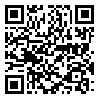Download citation:
BibTeX | RIS | EndNote | Medlars | ProCite | Reference Manager | RefWorks
Send citation to:



BibTeX | RIS | EndNote | Medlars | ProCite | Reference Manager | RefWorks
Send citation to:
Ranayi E, Rahmatzadeh Yousefabadi F, Babazadeh S, Kazemian A. Development and validation of a questionnaire on the pseudo-scientific invalid Iranians’ belief regarding oral health. J Dent Med-tums 2022; 35 : 13
URL: http://jdm.tums.ac.ir/article-1-6129-en.html
URL: http://jdm.tums.ac.ir/article-1-6129-en.html
1- Dental Student, School of Dentistry, Mashhad University of Medical Sciences, Mashhad, Iran
2- Assistant Professor, Department of Community Oral Health, School of Dentistry, Mashhad University of Medical Sciences, Mashhad, Iran
2- Assistant Professor, Department of Community Oral Health, School of Dentistry, Mashhad University of Medical Sciences, Mashhad, Iran
Abstract: (1123 Views)
Background and Aims: The aim of this study was development and validation of a questionnaire measuring the pseudo-scientific unsupported of Iranians’ belief regarding oral health.
Materials and Methods: A list of 169 pseudo-scientific and invalid Iranian beliefs about oral health that was collected in the previous phase of the study were sent to a purposive sample of 13 professors at Mashhad dental school which resulted in extracting 34 beliefs being considered more common among Iranians. A list of 21 pseudo-scientific beliefs was obtained for preparing the questionnaire after receiving the sample opinions of 21 professors of Mashhad dental school about the invalidity and pseudoscientific propositions and their written revision. Finally, the questionnaire was completed by 44 participants to analyze the ease and clarity and to calculate Cronbach's alpha and Kuder Richardson measure as a homogeneity reliability index. It was completed in a group of 15 participants with a time interval of one month for test-retest analysis and consistency reliability evaluation.
Results: A questionnaire consisting of 21 beliefs was developed using four-point, three-point, or two-point Likert scales. The standardized Cronbach's alpha score and Kuder Richardson's measure score were 0.641 and 0.514, respectively, which indicated the moderate to good reliability of the homogeneity. The Interclass Correlation Coefficient (ICC) was calculated as 0.863, representing very good reliability of consistency of the questionnaire. Furthermore, the kappa coefficient of each of the 21 statements had a significant difference with zero (P<0.05) ranging between 0.605 and 1.
Conclusion: The result of the present study is a questionnaire measuring the level of Iranians’ belief in unsupported and invalid statements about oral health. Using this questionnaire would be helpful for dentists and oral health professionals to promote knowledge of Iranians about oral health.
Materials and Methods: A list of 169 pseudo-scientific and invalid Iranian beliefs about oral health that was collected in the previous phase of the study were sent to a purposive sample of 13 professors at Mashhad dental school which resulted in extracting 34 beliefs being considered more common among Iranians. A list of 21 pseudo-scientific beliefs was obtained for preparing the questionnaire after receiving the sample opinions of 21 professors of Mashhad dental school about the invalidity and pseudoscientific propositions and their written revision. Finally, the questionnaire was completed by 44 participants to analyze the ease and clarity and to calculate Cronbach's alpha and Kuder Richardson measure as a homogeneity reliability index. It was completed in a group of 15 participants with a time interval of one month for test-retest analysis and consistency reliability evaluation.
Results: A questionnaire consisting of 21 beliefs was developed using four-point, three-point, or two-point Likert scales. The standardized Cronbach's alpha score and Kuder Richardson's measure score were 0.641 and 0.514, respectively, which indicated the moderate to good reliability of the homogeneity. The Interclass Correlation Coefficient (ICC) was calculated as 0.863, representing very good reliability of consistency of the questionnaire. Furthermore, the kappa coefficient of each of the 21 statements had a significant difference with zero (P<0.05) ranging between 0.605 and 1.
Conclusion: The result of the present study is a questionnaire measuring the level of Iranians’ belief in unsupported and invalid statements about oral health. Using this questionnaire would be helpful for dentists and oral health professionals to promote knowledge of Iranians about oral health.
Article number: 13
Type of Study: Research |
Subject:
dental public health
Received: 2021/12/10 | Accepted: 2022/11/6 | Published: 2022/05/31
Received: 2021/12/10 | Accepted: 2022/11/6 | Published: 2022/05/31
Send email to the article author
| Rights and Permissions | |
 |
This work is licensed under a Creative Commons Attribution-NonCommercial 4.0 International License. |




